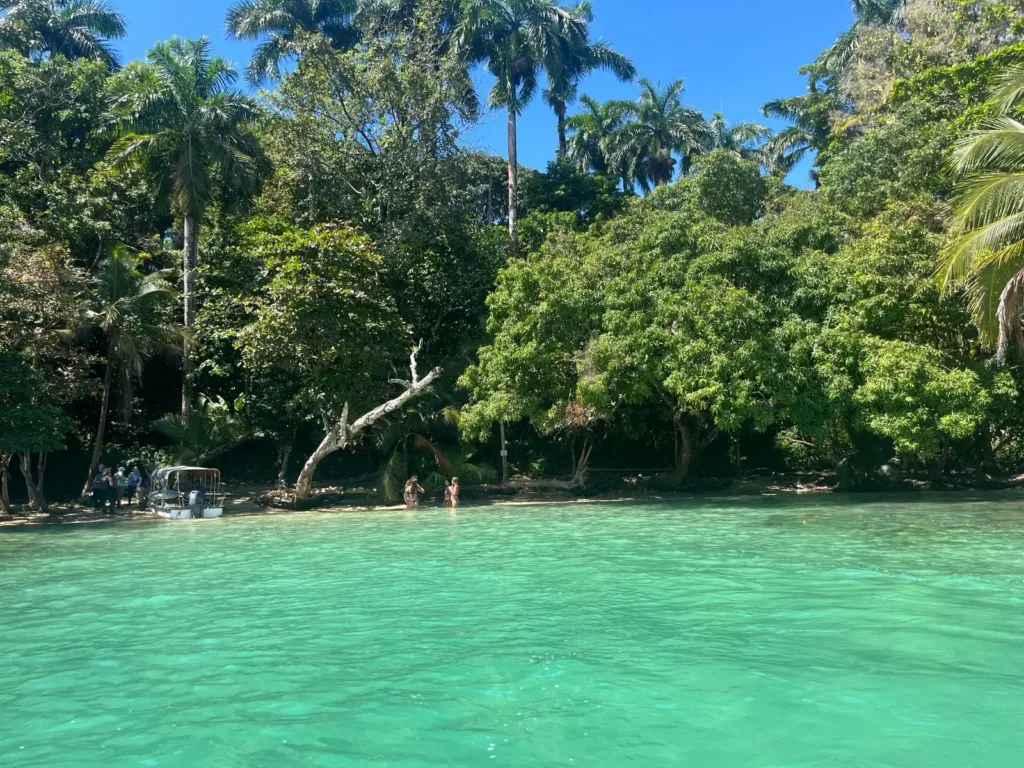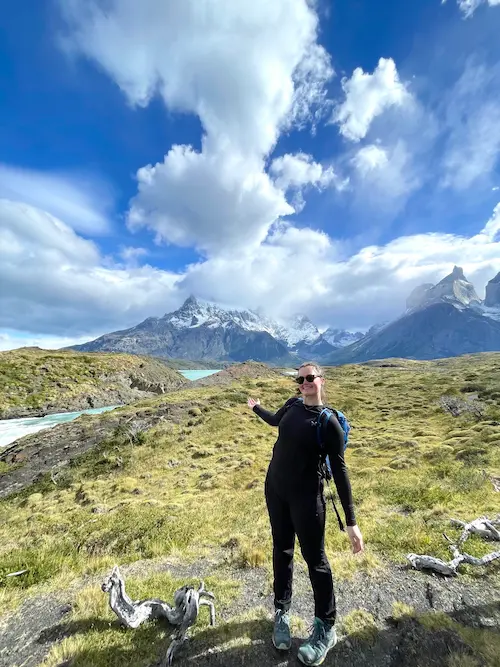A Tale of Two Countries
We had the opportunity to travel for a month while learning about the Mekong River, and our last stop was in Vietnam. Our ten days there were essential in putting Cambodia into context. After winding our way down the Mekong River in Cambodia, we reached the Mekong Delta in Vietnam. The moment we crossed the border, it was clear that this was a country with a very different economic, social, and political history.
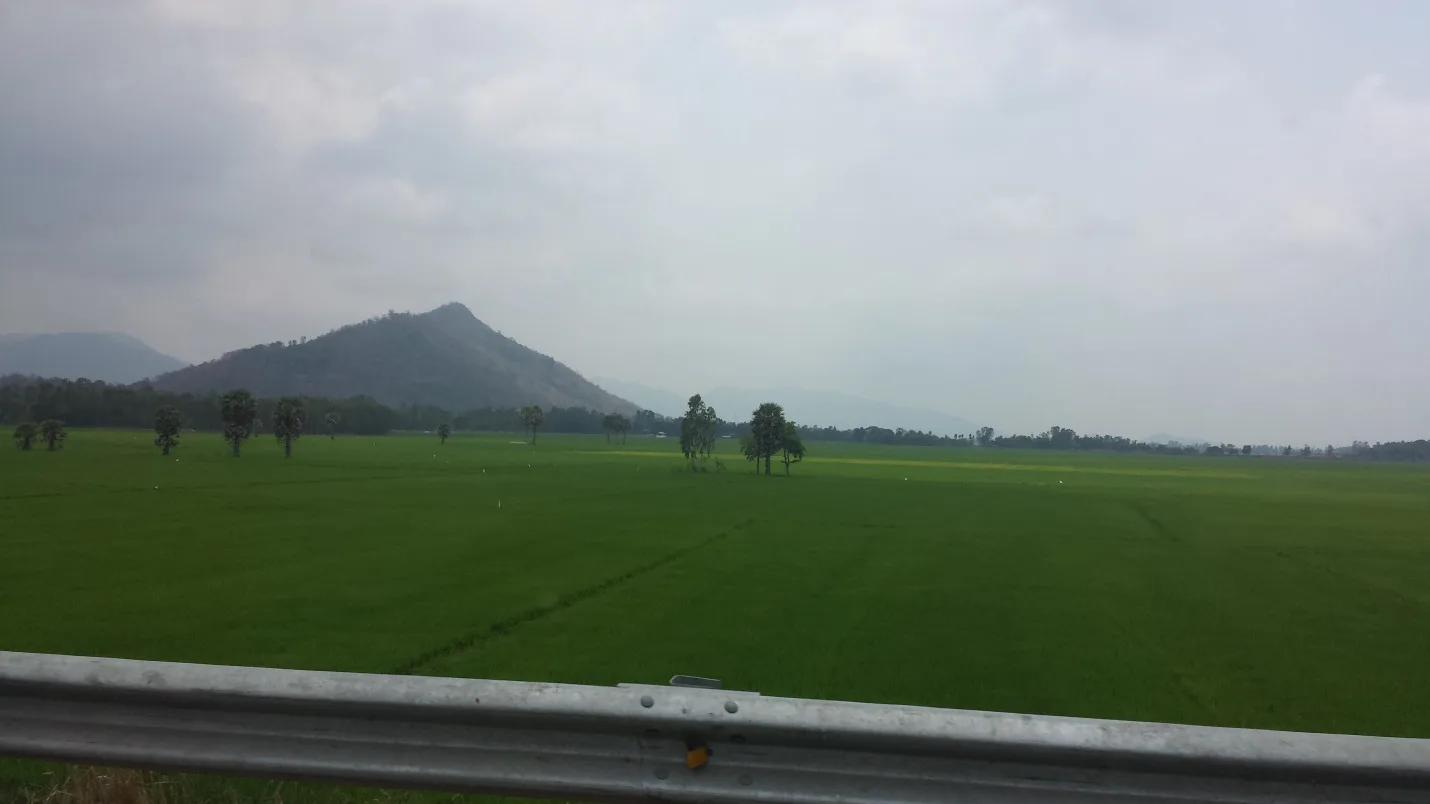
Our first view of Vietnam.
Right away, it was obvious that the rice fields in Vietnam were bright green (in the middle of dry season!) as compared to the brown fields in Cambodia. We learned from Vietnamese professors at Can Tho University that this was due to the expansive irrigation systems that were engineered during the Doi Moi economic reforms of 1986. Before this, Vietnam was an importer of rice, but when the market opened up, their domestic economy grew rapidly. Vietnam is currently one of the world’s largest exporters of rice largely due to their irrigation system, high yield rice varieties, and use of herbicides and pesticides. Among other consequences of these practices, Vietnam’s high yield rice varieties are low in quality compared to Cambodia’s. Our first meal in Vietnam gave us first-hand evidence of this. It was not as sticky, moist, or flavorful as the rice we had been spoiled with in Cambodia (we were told that bat fertilization in Battambang Province makes the rice extra good beyond its high quality variety). However, Vietnam made up for their rice in hot pot. Hot pot is a wonderful phenomenon in which you are brought out a stove, broth, and raw vegetables, and you add vegetables to the hot broth to let them cook at your table. It’s ready by the time you’ve finished your extremely polarized bitter and sweet Vietnamese coffee.
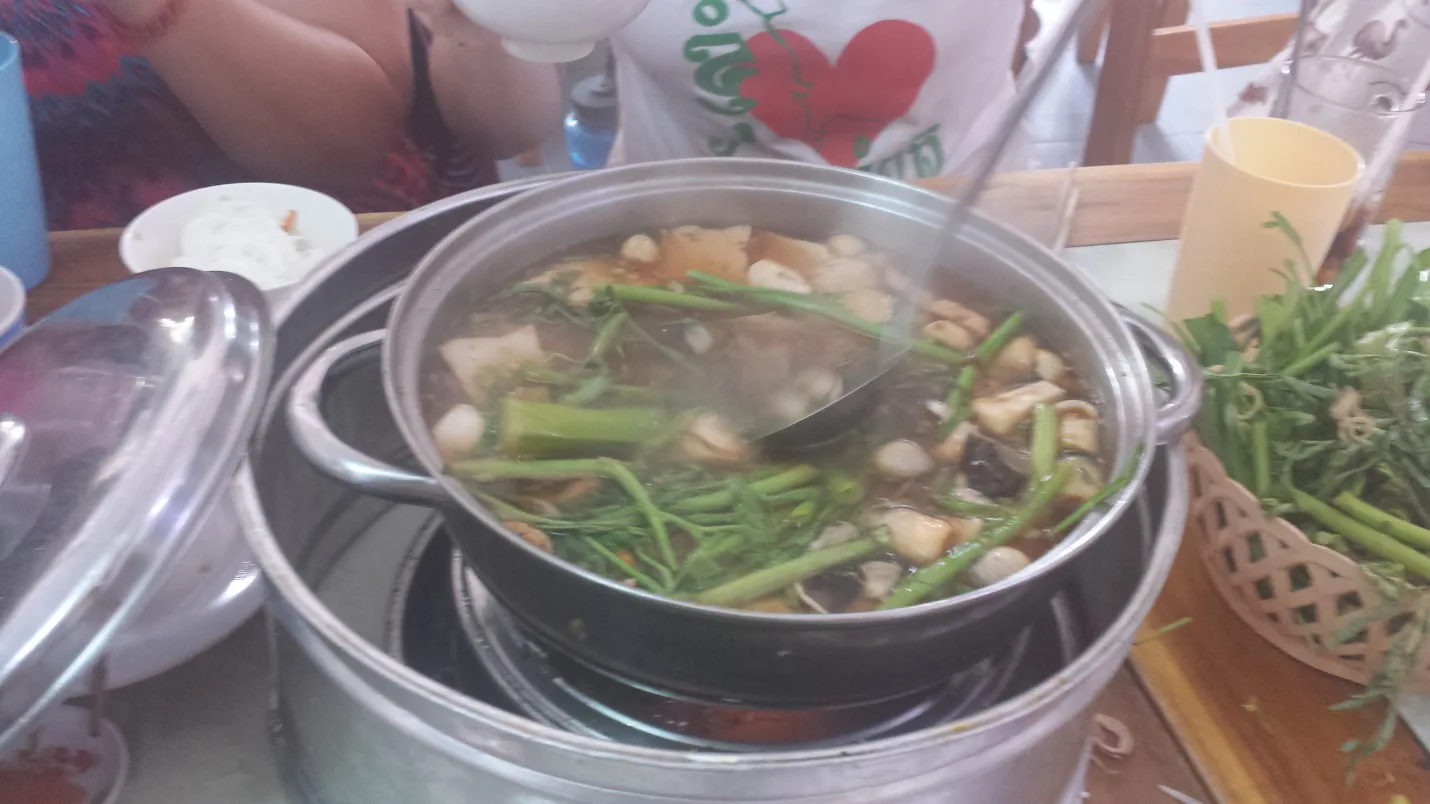
Hot pot!
Back in Cambodia, we had taken a field trip to Bokor National Park to investigate the development occurring there and to do some early morning birding. When we got to the trail head for our bird watching, we spread out some mats to have a quick breakfast. Fifteen minutes into our breakfast, a group of about 20 Vietnamese tourists rolled up on motorbikes and formed a circle around us and started taking pictures. Before long, they were back on their motorbikes, tearing down the trail. This was our first exposure to a culture characterized by directness as compared to the more reserved Cambodian composure.
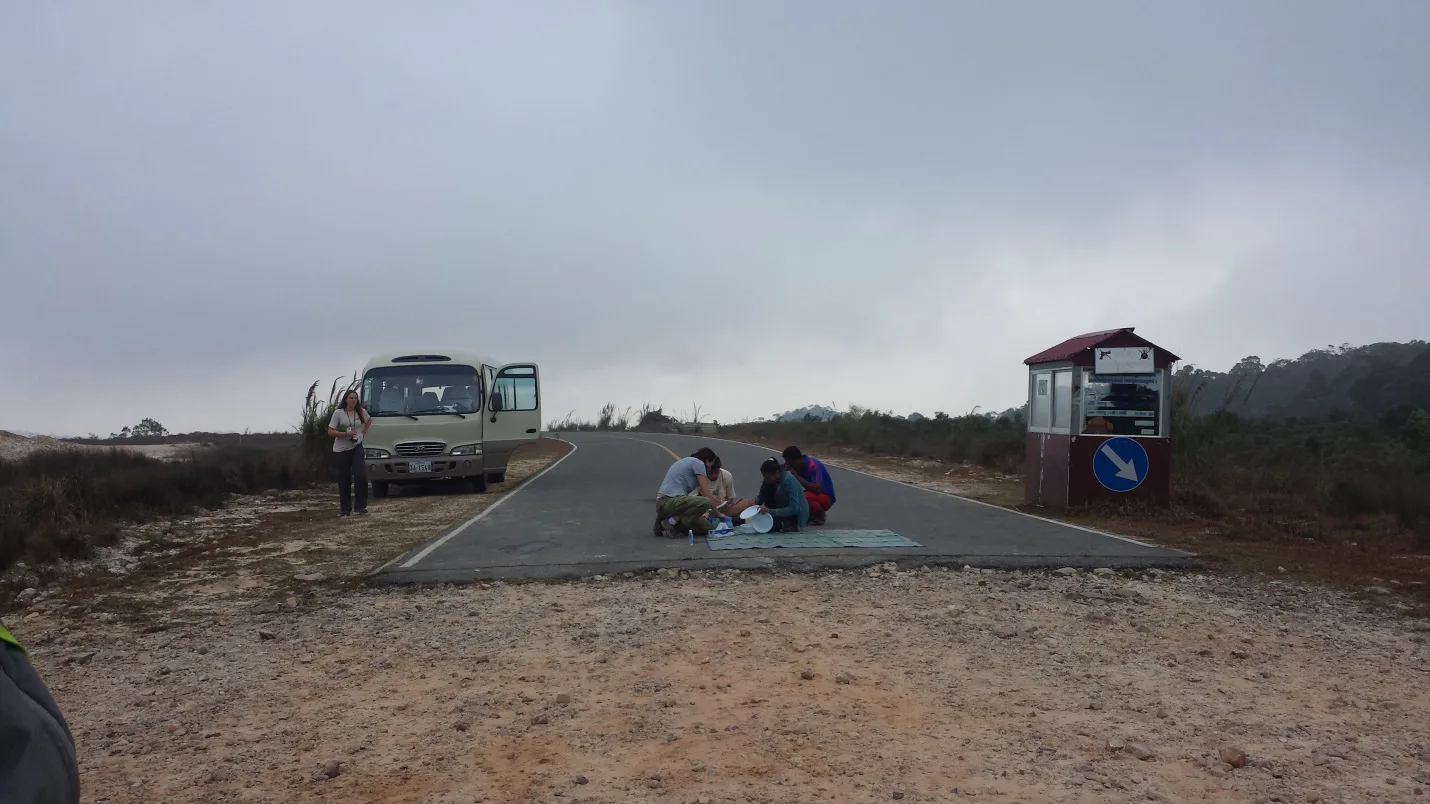
Our morning breakfast in Bokor National Park.
I had expected Vietnam to be like crossing the border from the United States to Canada, where people, practices, and culture remain relatively the same. This was not the case. I am so grateful for the opportunity to learn about the complex histories of Vietnam and Cambodia and being able to see and experience the tangible cultural results.
Related Posts

